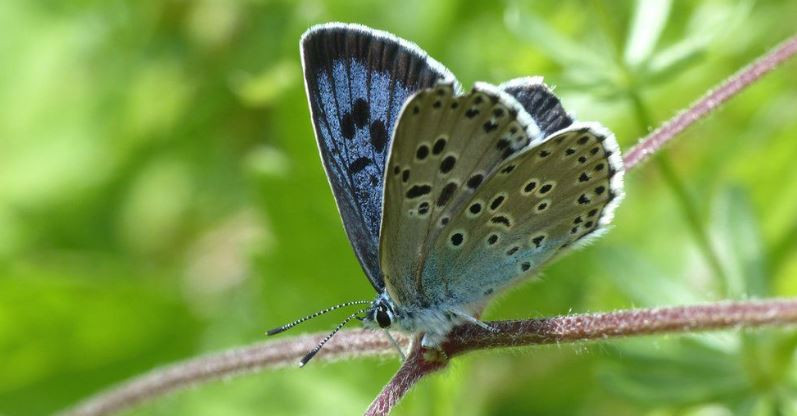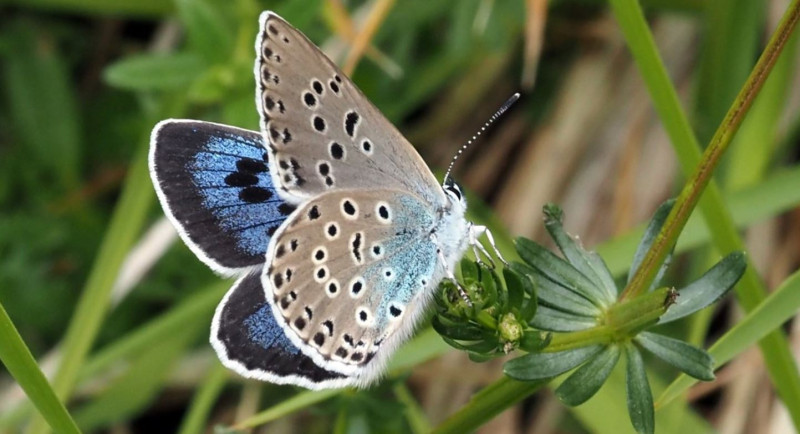The blue butterfly had been ‘extinct’ from the UK since 1979
A certain species of butterfly, once extinct in the UK, had its best summer in 150 years. The great blue butterfly, according to the BBC, is one of Europe’s most endangered insects, but thousands were recorded this summer in south-west England.
This is the result of a long-term conservation program led by the Royal Entomological Society.
The scientists said their successful effort shows that endangered species can be saved. Many other rare species have also benefited from conservation work at around 40 sites in Somerset and the Cotswolds.
The blue butterfly had been ‘disappeared’ from the UK since 1979. Four years later caterpillars were brought from Sweden in an attempt to reintroduce the species to England.
Research ecologist David Simcox, one of the pair who reintroduced the butterfly in 1983, said he was delighted to see them now thriving. “I didn’t have a single gray hair on my head when I started. Now it’s all gray,” he told BBC News.
In the 1980s Mr Simcox and his colleague, Oxford University professor Jeremy Thomas, did not expect this kind of success. “Obviously you have hope, but the first 10 years were difficult, the national population was below 10,000 eggs,” explained Mr Simcox.
In contrast, this summer conservationists counted 750,000 large blue butterfly eggs. Of these, they estimated that they released about 20,000 butterflies! As part of the program, conservationists focused on restoring a type of wild grassland where the great blue butterfly likes to live. “It is one of the strangest butterflies in the world,” said the professor.
It lives a very unusual life, spending most of the year as a caterpillar inside red ant nests, where it feeds on larvae. This life cycle makes it more difficult to protect.
“This success shows that if we can understand the ecological requirements of very rare and difficult species, we can reverse the decline,” explained Mr Simcox.
And while the great blue butterflies are now doing well, they remain endangered and their long-term future is uncertain, he warned.
Extreme weather events and climate change are also a risk, especially since great blue butterflies rely on flowering plants and ant nests.
Read the News today and get the latest news. Follow us on Google News and be the first to learn all the news from Skai.gr.
I have worked in the news industry for over 10 years. I have a vast amount of experience in covering health news. I am also an author at News Bulletin 247. I am highly experienced and knowledgeable in this field. I am a hard worker and always deliver quality work. I am a reliable source of information and always provide accurate information.












